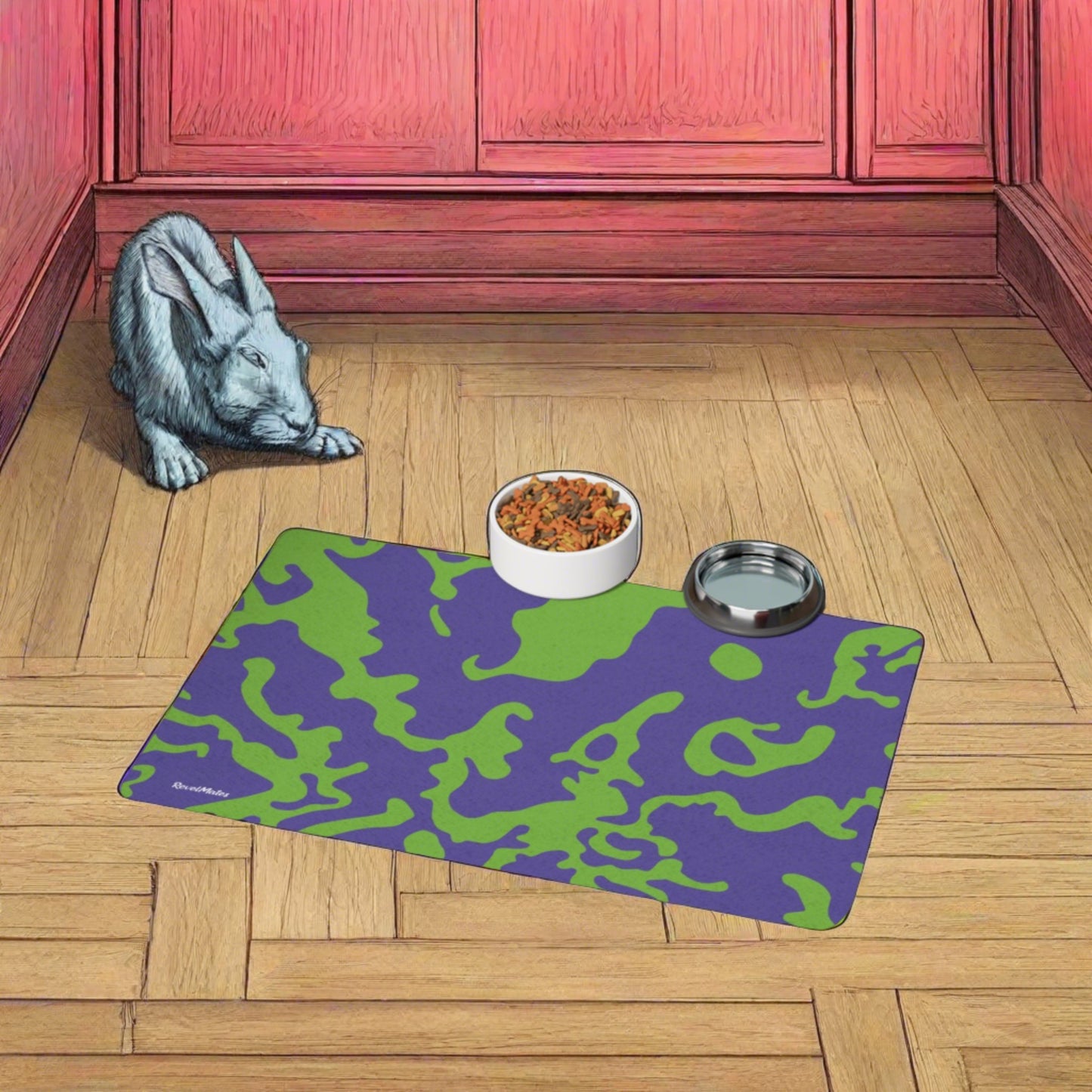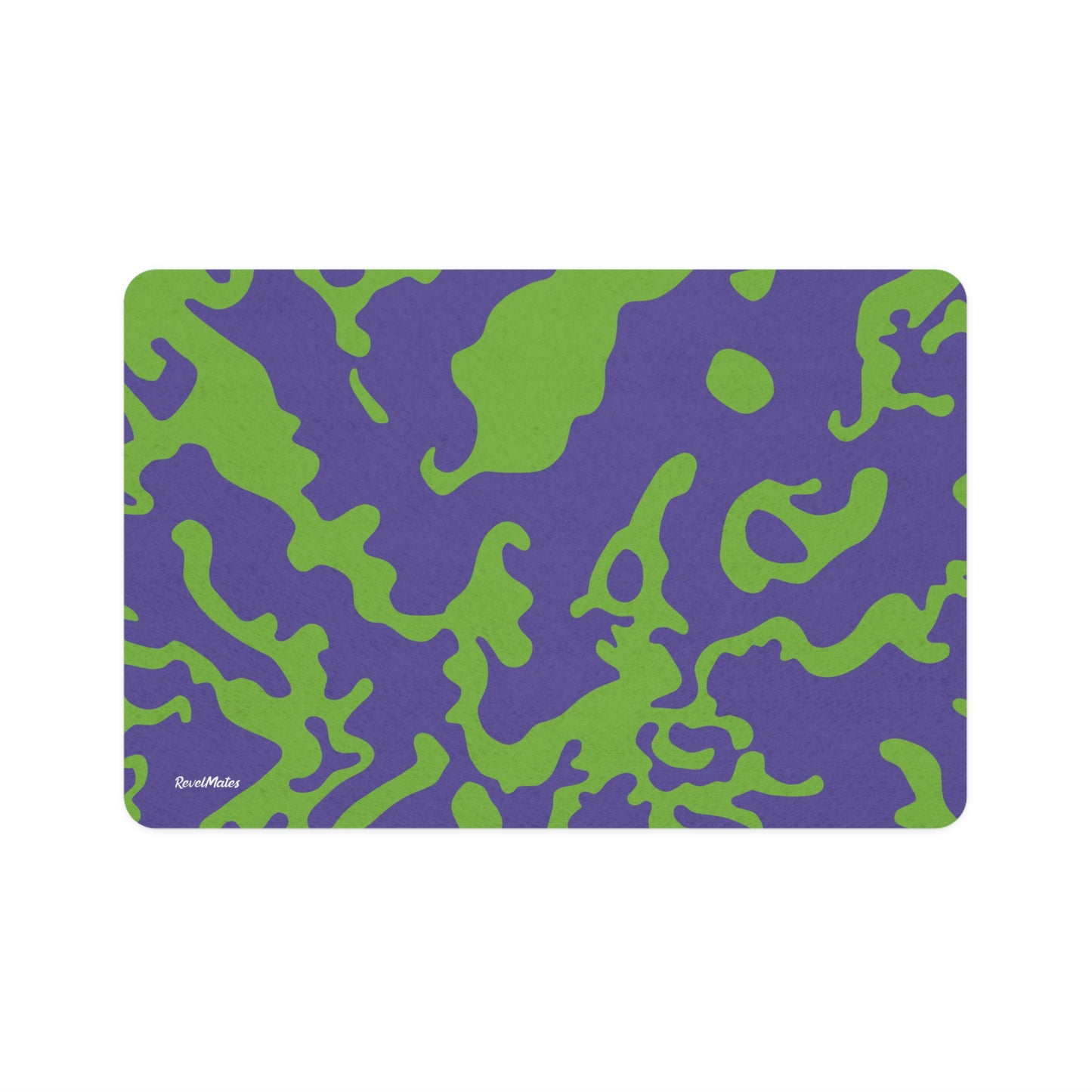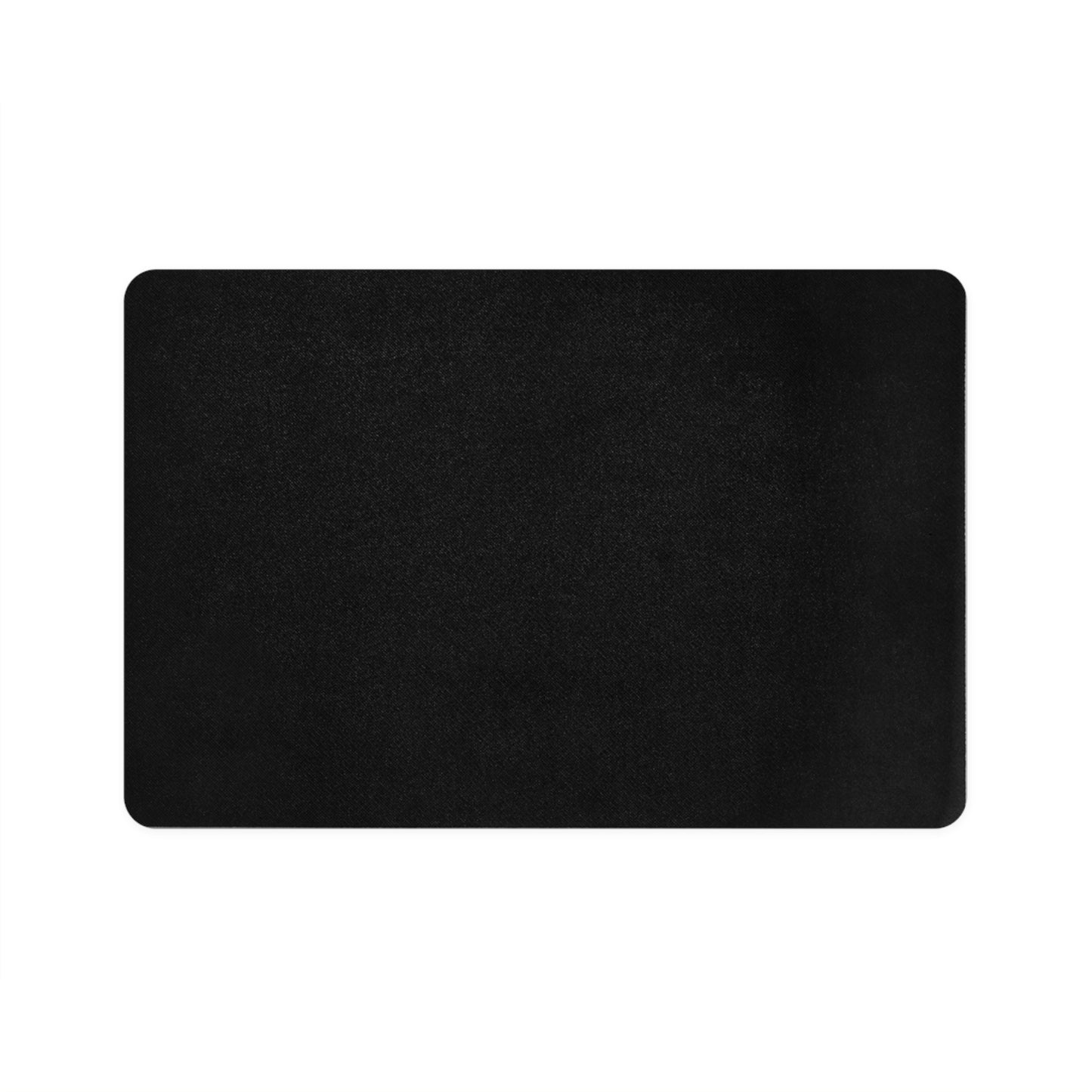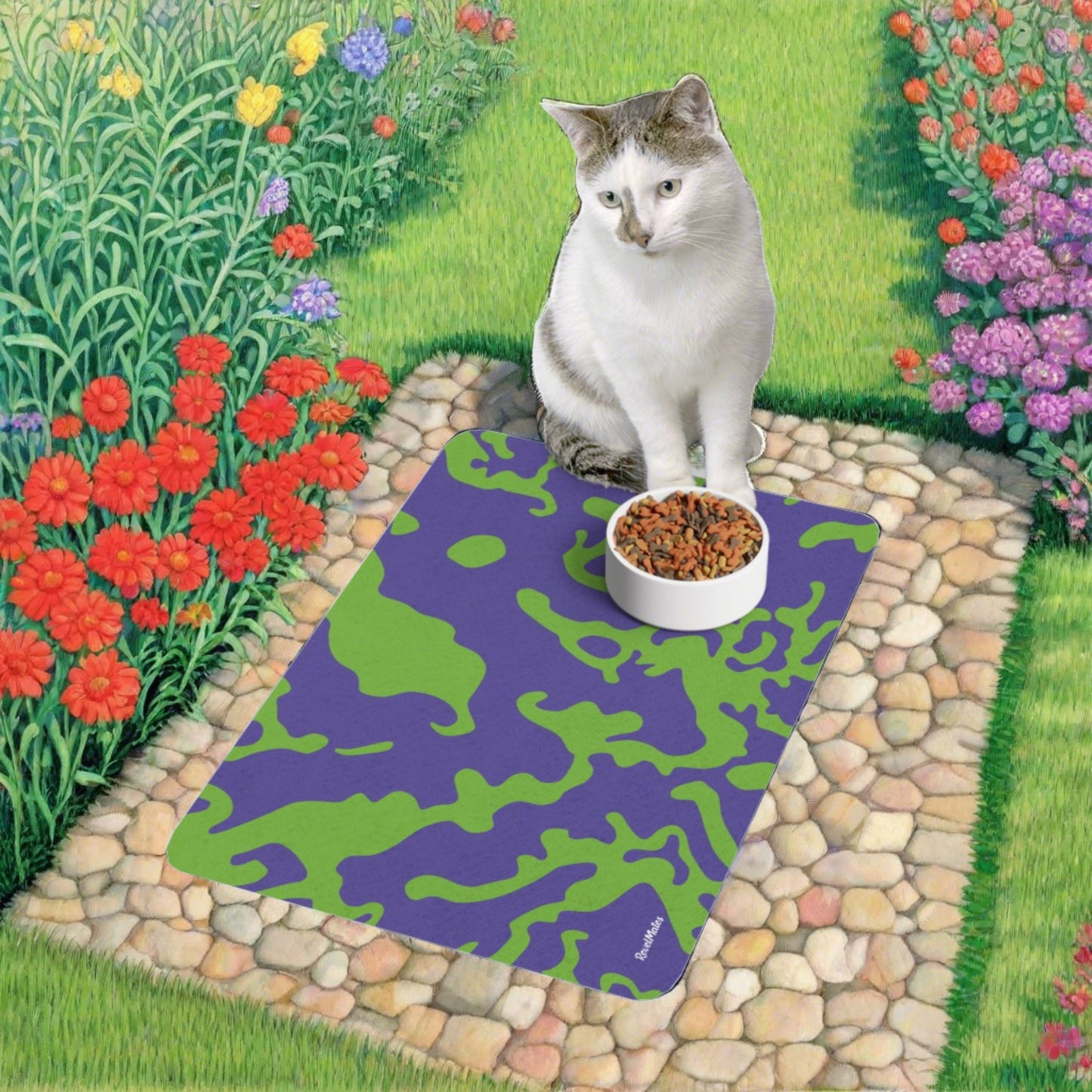Get 10%OFF your FIRST purchase when you SUBSCRIBE!
Pet Food Mat | for Dogs, Cats and all beloved Pets | Camouflage Lavender & Lime Design
Pet Food Mat | for Dogs, Cats and all beloved Pets | Camouflage Lavender & Lime Design
Couldn't load pickup availability
This Pet Food Mat was created to minimize mess. This mat is as practical as it is stylish. Made with a non-slip rubber base, this pet feeding mat stays put even when the clumsiest puppers are having their meal. Each mat is rectangular, thick, and perfect for all Pets.
🐾 Unique print design
🐾 One size: 30.48 x 45.72 cm \ 12" x 18"
🐾 100% polyester blend front
🐾 100% neoprene rubber back
🐾 One size
🐾 One-sided print
🐾 Non-slip back
🐾 Edge-to-edge full-color surface
100% polyester front (print side)
This strong and durable synthetic fabric retains its shape and dries quickly.
Anti-slip backing
100% neoprene rubber backing keeps the pet mat firmly in place.
Vibrant colors
The latest printing techniques provide bright and crisp colors.
Care instructions: clean with warm water and mild soap. Lay flat to dry (Do Not Use a Dryer).
Please Note
Please Note
• For DTG (direct-to-garment printing method) products, there is a tolerance of 0.5" (1-1.5cm) for print placement, meaning that minor variations in the placement of the print will not be considered as defects.
• A faint odor is a natural occurrence in the DTG printing industry. Typically, the odor will disappear after the first wash.
• Due to differences in monitor screens, colors may appear slightly different in print than what you see on your screen.
• The same design can appear different after printing on two different products. This largely depends on the material printed. For example, one t-shirt style may have awesome ink absorption, resulting in a sharp-looking finish. However, that same design on another product (maybe a thick hoodie) might appear less intense (DTG prints on blended fabric will look less crisp than on a 100% cotton material). This discrepancy can be due to the fabric used (cotton, polyester, rayon, blend, etc.), the thickness of the cloth, differences in dying technologies/processes, and other factors.
Share








